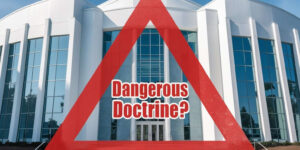60 Million People Flock to ‘Friends of Zion,’ Despite Rise of Anti-Semitism
The Friends of Zion and the Jerusalem Prayer Team reached 60 million members on their global social media network of Israel supporters this week. This large group of non-Jewish advocates for Israel joined the network out of an understanding that much of the modern conflict takes place not on battlefields, but online. This newfound support broadcasts that the state of Israel and the Jewish people truly have friends all around the world, even when the world struggles to show it, according to Friends of Zion
In this day and age, Friends of Zion said, Israel’s adversaries have weaponized the internet, especially social media, as tools in their attacks against the Jewish state. The Friends of Zion Museum said it has planned a new approach to fighting these so-called “anti-Israel forces” and is putting together a counterforce to help defend the Jewish people and the state of Israel—including the new Friends of Zion Educational Center, which includes a studio, the first Christian Zionist think tank, an online academy that educates Israel’s friends in how to defend the Jewish state online and much more.
“The hatred of Jewish people now has a new face—and a new excuse! Now we hear people claim they don’t hate Jews, but they do hate Israel or Zionism,” said founder of the Jerusalem Prayer Team Dr. Mike Evans. “It is the same thing. Under the guise of ‘social justice,’ Zionism is being equated with white supremacy, colonialism and slavery. Our members are fighting against this evil and damaging falsehood that is getting Jewish people killed, both in Israel and around the world.”
In addition to the massive online and social media presence, the Jerusalem Prayer Team operates the Friends of Zion Museum in Jerusalem, where the stories of Israel’s Christian friends throughout the years are shared with Jewish people and guests from around the world. The group also conducts major humanitarian outreach, both to feed and house poor Holocaust survivors and to meet the needs of those with physical or mental challenges following terrorist attacks.






































